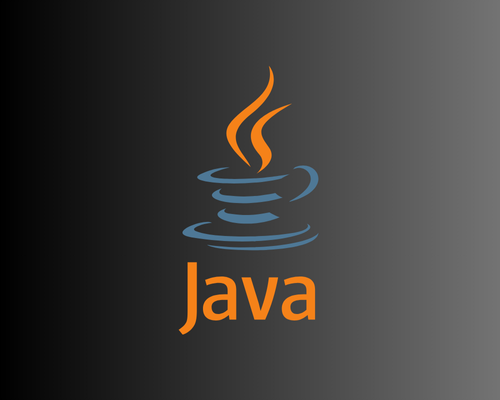Advanced Java(JDBC,Servlets and JSP)
At Swhizz Technologies, our Advanced Java training is designed to build strong expertise in key technologies like JDBC, Servlets, and JSP. JDBC (Java Database Connectivity) enables seamless interaction with databases, making it easier to store, retrieve, and manage data in enterprise applications. Servlets act as the backbone of dynamic web development in Java, handling requests and responses efficiently, while JSP (Java Server Pages) simplifies the process of creating interactive and user-friendly web interfaces. Together, these technologies form the foundation of robust and scalable enterprise applications, making this course an essential part of the Best Java Full Stack Developer course training in Hyderabad.
Our training program provides hands-on learning with real-time projects, helping learners master database-driven applications, server-side programming, and dynamic web page development. With expert guidance, industry-oriented curriculum, and practical exposure, Swhizz Technologies ensures students gain the knowledge and confidence required to excel in the IT industry. This program is carefully designed as part of our Full Stack Java training in Hyderabad, where students learn both backend and frontend integration for real-world applications.
To enhance practical knowledge, we integrate real-time projects into the training process. These projects allow students to apply JDBC, Servlets, and JSP in solving real-world business problems such as online banking systems, e-commerce platforms, and content management applications. By working on these projects, learners gain exposure to industry practices, problem-solving skills, and end-to-end application development. With placement-focused learning, Swhizz Technologies is trusted for offering the Best Java Full Stack Development training with placement in Hyderabad, ensuring students are industry-ready and career-focused.

Overview
At Swhizz Technologies, our Advanced Java training is designed to build strong expertise in key technologies like JDBC, Servlets, and JSP. JDBC (Java Database Connectivity) enables seamless interaction with databases, making it easier to store, retrieve, and manage data in enterprise applications. Servlets act as the backbone of dynamic web development in Java, handling requests and responses efficiently, while JSP (Java Server Pages) simplifies the process of creating interactive and user-friendly web interfaces. Together, these technologies form the foundation of robust and scalable enterprise applications, making this course an essential part of the Best Java Full Stack Developer course training in Hyderabad.
Our training program provides hands-on learning with real-time projects, helping learners master database-driven applications, server-side programming, and dynamic web page development. With expert guidance, industry-oriented curriculum, and practical exposure, Swhizz Technologies ensures students gain the knowledge and confidence required to excel in the IT industry. This program is carefully designed as part of our Full Stack Java training in Hyderabad, where students learn both backend and frontend integration for real-world applications.
To enhance practical knowledge, we integrate real-time projects into the training process. These projects allow students to apply JDBC, Servlets, and JSP in solving real-world business problems such as online banking systems, e-commerce platforms, and content management applications. By working on these projects, learners gain exposure to industry practices, problem-solving skills, and end-to-end application development. With placement-focused learning, Swhizz Technologies is trusted for offering the Best Java Full Stack Development training with placement in Hyderabad, ensuring students are industry-ready and career-focused.
Course Description
Java Fullstack Development Curriculum
1. Introduction to Java Programming
- Course & Project Introduction
- What is a Programming Language?
- Introduction to Java & Features
- JDK, JRE, JVM
- Platform Independent Concepts
- Oracle JDK vs OpenJDK
- Environment Setup (Java, IntelliJ, MySQL, Workbench, Gradle)
2. Java Fundamentals
- Variables, Data Types & Operators
- Arrays and Strings
- Control Flow Statements (if-else, switch, loops)
- OOPS Concepts: Classes, Objects, Methods, Constructors, Access Modifiers
- Exception Handling: Try, Catch, Custom Exceptions, Multiple Catches
3. Collections Framework
- Arrays & Array of Objects
- ArrayList, LinkedList, HashMap, TreeMap
- Encapsulation & Abstraction
4. Git & Project Implementation
- Git Basics (Repository, Clone, Branch, Commit, Push, Pull)
- Real-time Project: File Read/Write, Polymorphism
- Inheritance, Overloading & Overriding
- File I/O Operations
5. Java with Databases (JDBC)
- RDBMS & SQL (Create, Insert, Select, Update, Delete, Constraints)
- JDBC Connectivity with MySQL
- CRUD Operations with Database
- Assignment: Large Dataset Project
6. Spring Framework
- Introduction to Spring
- Gradle & Dependency Management
- Spring Core Concepts (DI, Singleton, Autowired, Component, Service)
- Spring JDBC Template
7. Spring Data JPA & Hibernate (ORM)
- Entities & Repositories
- Hibernate Architecture & States
- One-to-One, One-to-Many, Many-to-Many Mappings
- Query API & Criteria API
- Real-Time ORM Implementations
8. Spring Boot Development
- Spring Boot Introduction & Initializer
- Rest Controllers & CRUD Operations
- Profiles & Configurations
- Swagger/OpenAPI Documentation
9. REST API Development
- Client-Server Architecture
- REST Methods (GET, POST, PUT, DELETE)
- Path Params, Query Params, Headers, Request & Response Body
- Exception Handling (Controller Advice, Custom Responses)
10. Advanced RESTful Services
- Consuming External APIs with RestTemplate
- JWT Authentication & Authorization
- Pagination, Sorting, Filtering
11. Database Optimization & Integrations
- Redis Caching Integration
- Spring Batch (Jobs, Steps, Tasklets)
- Elasticsearch Integration
12. Microservices Development
- Microservices Architecture
- Communication (Sync & Async using Kafka)
- Fault Tolerance & Design Patterns
13. Live Project Development (Java Fullstack)
- Frontend Development with Angular
- Backend APIs with Spring Boot
- Integration of Angular with Spring Boot APIs
Course Key Features
- Classroom & Online Training with flexible schedules
- Trainers from IT Industry with 10+ years of experience
- Hands-on Projects & Assignments for real-world exposure
- One-on-One Mentoring & doubt clearance sessions
- 8 Hours Daily Lab Access for practice
- Industry-Oriented Curriculum designed for job readiness
- Comprehensive Course Material with lifetime access
- Valid Swhizz Certification upon completion
- Resume Building, Interview Prep, Mock Interviews
- Exclusive Job Drives with 100+ hiring partners
- Internship Opportunities with real-time project work
Benefits
- Learn end-to-end fullstack development with Java, Spring Boot & Angular
- Gain hands-on project experience with real-time case studies
- Flexible learning options (online & offline)
- 100% Placement Assistance with tie-ups across MNCs & startups
- Stay updated with latest tools & technologies used in the IT industry
Who Should Attend
This course is ideal for:
- Fresh Graduates & Postgraduates seeking IT jobs
- Working Professionals who want to switch to Java Fullstack Development
- Software Developers looking to upgrade to Spring Boot & Microservices
- Backend Developers aiming to learn frontend (Angular) for fullstack roles
- Career Gap Individuals re-entering the IT industry
- System Administrators & QA Engineers who want to expand skillsets


